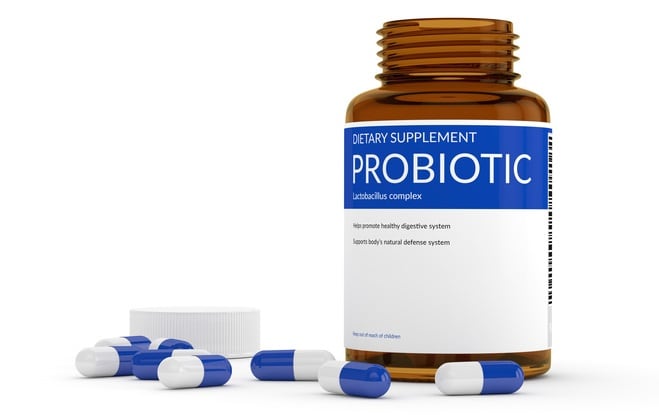Analysis of label declarations of 93 products purchased at retail in the Washington D.C. area revealed that 65% of the probiotic products could not be linked to evidence of efficacy. Dr Merenstein told NutraIngredients-USA that the analysis included the majority of recognizable brands in the category.
The researchers considered a product supported by evidence if the product label disclosed the strain of bacteria or yeast designation(s), the strain was said to be present at a beneficial dose, and at least one controlled human study supported use of the probiotic was listed on PubMed, a web-based search engine for biomedicine and health studies.
Writing in the Journal of General Internal Medicine, Dr Merenstein and his co-authors noted that, “all products were labeled in compliance with FDA regulations” and noted that the FDA does not require strain designations or viable counts at the end of shelf life on a probiotic supplement label.
Strains, doses, costs
Dr Merenstein, working with John Guzzi (Georgetown University Medical School) and Dr Mary Ellen Sanders (Dairy & Food Culture Technologies), also considered doses, product cost, and the number of species/ strains in the products and found “many high-dose, multiple-species, and more expensive products that lacked evidence.”
“It may be counterintuitive to consumers, but we found that products with fewer strains and lower cost were more likely to be supported by evidence we could trace,” said Dr Merenstein.
“I think it's a lot to expect consumers to check the evidence, but trustworthy guides can help them find products backed by evidence,” said Dr Dan Merenstein. “Companies could greatly help this process by labeling products with strain designations, dose at expiration, and with proper indication of usage.”
The study authors noted that, of the 93 products examined, 67 were judged to be "unique" based on distinct strain composition. In addition, any products that did not disclose strains on labels were considered unique since the precise composition could not be determined.
California bill AB1178
The study appears to highlight the limitations in the current FDA regulations, but a recent bill introduced in the California state legislature recently was called a “potential game changer” by Dr Merenstein.
CA bill AB1178 was introduced by Assemblymember Bill Quirk (D-Hayward) in February, and would require that every probiotic supplement sold in the state to label the genus, species, and strain of each live microorganism in the product. (Amendments to the Bill have removed requirements to list the total estimated count of all live microorganisms in the dietary supplement at the end of its shelf life.)
Merenstein, Guzzi, and Sanders wrote: “Specific claims on probiotics must be tied to specific strains. Because not all strains or doses can be expected to work for all indications, science-based organizations emphasize that the choice of probiotic should be based on evidence of health benefit.”
Definition
Probiotics were defined by the FAO/WHO in 2001 as “Live microorganisms which when administered in adequate amounts confer a health benefit on the host”.
Industry guidelines to raise the bar

Commenting on the new study’s findings, George Paraskevakos, executive director of the International Probiotics Association (IPA), told us that his association’s mission is to promote the safe and efficacious use of probiotics throughout the world and that IPA has “long advocated for many of the recommendations made by the researchers.
“Specifically, IPA, together with CRN, outlined “Best Practice Guidelines” for probiotics to facilitate transparency and appropriate labeling. Like the researchers, the Guidelines call for the specific strains of probiotics to be identified on product labels,” said Paraskevakos.
“The Guidelines also call for the dose to be declared in terms of CFUs at time of expiration, mainly because that is how the dose is identified in virtually all research on probiotics (although there are very specific cases like co-culturing where mg’s are used). Of course, it goes without saying that like claims for every category of dietary supplements, all claims for probiotics must be substantiated, and we believe that responsible companies ensure that is the case.”
Regarding claims, Paraskevakos added that dietary supplements can only make or imply structure function claims, not medical claims, and that claims, depending on their type, can also be substantiated by unpublished research and other scientific data.
Solange Henoud, regulatory affairs director for Lallemand and chair of IPA’s regulatory affairs committee, added: “While the researchers’ call for probiotic supplements to identify the research supporting claims is interesting and we would certainly not discourage manufacturers from voluntarily doing so, we note there is no reason why that concern should only apply to probiotic supplements and not to all supplements and functional foods.
“Enabling consumers to make informed choices ties back to education, proper communication and importantly appropriate regulations. IPA has engaged in discussions not only with the US FDA but many government agencies globally to ensure regulatory schemes take into consideration the unique nature of probiotics.”
Third party certification
A recent paper in Frontiers in Microbiology by a team of experts convened by the US Pharmacopeia also made strong proposals to boost consumer trust in the quality of commercial probiotic products, including third-party certification plus emerging methodologies useful for quality assessment.
Dr Merenstein told us that if enough companies went the third party certification route then market forces could push others to follow.
Key topics covered in the USP paper included:
Third-Party Verification, Certification and Qualification: Independent certification of probiotic products gives consumers confidence that the labeled products are safe and contain exactly what the package claims.
Quality Standards: Implementing requirements, specifications, guidelines or characteristics that are used consistently ensures products are fit for their intended purpose and consumers can be certain they are getting high-quality products every time they visit the shelf.
Probiotic Product Labels: Differing label requirements for probiotics from other food and supplements can result in a lack of vital information for the consumer. Manufacturers should take steps to include all necessary information to enable consumers to more appropriately select which products to buy.
Identity: The ability to identify a specific probiotic strain clinically demonstrated to provide specific benefits and differentiate from other strains is essential to empower consumers with the tools needed to make the most informed decision based on unique health and wellness needs.
Quantification: The amount of live probiotic strains in each product should be tested by the manufacturer to ensure the consumer gets the amount of probiotic strains that should be in the product.
Single Strain vs. Multiple Strain Products: Today’s probiotics tend to mention the entire microbial count without distinguishing the different strains in the blend. More progress toward enumeration is important to give consumers full visibility to what’s in their products.
Purity: Although dietary supplement manufacturers are responsible for using Good Manufacturing Practices to ensure the safety and quality of their products, there are certain specifications missing and changing regionally. More uniform standards must be introduced so consumers, regardless of location, can be sure they have access to quality products.
Buffy Stahl, co-author of the published paper and global business development leader at DuPont, commented: “As the global probiotics market gains popularity and the number of products on the shelves increase, it becomes increasingly difficult for consumers to distinguish between low-quality and high-quality products. The adoption of third-party evaluations to certify probiotic quality and label accuracy can minimize ambiguity of product performance, which threatens the trust consumers and healthcare providers have in probiotics products.”
“We believe the time is now for the industry to voluntarily improve transparency and each company in the supply chain needs to hold themselves accountable to delivering a quality product consumers can trust.”
Source: Journal of General Internal Medicine
Published online ahead of print, doi: 10.1007/s11606-019-05077-5
“More Information Needed on Probiotic Supplement Product Labels”
Authors: D. Merenstein, J. Guzzi, M.E. Sanders




